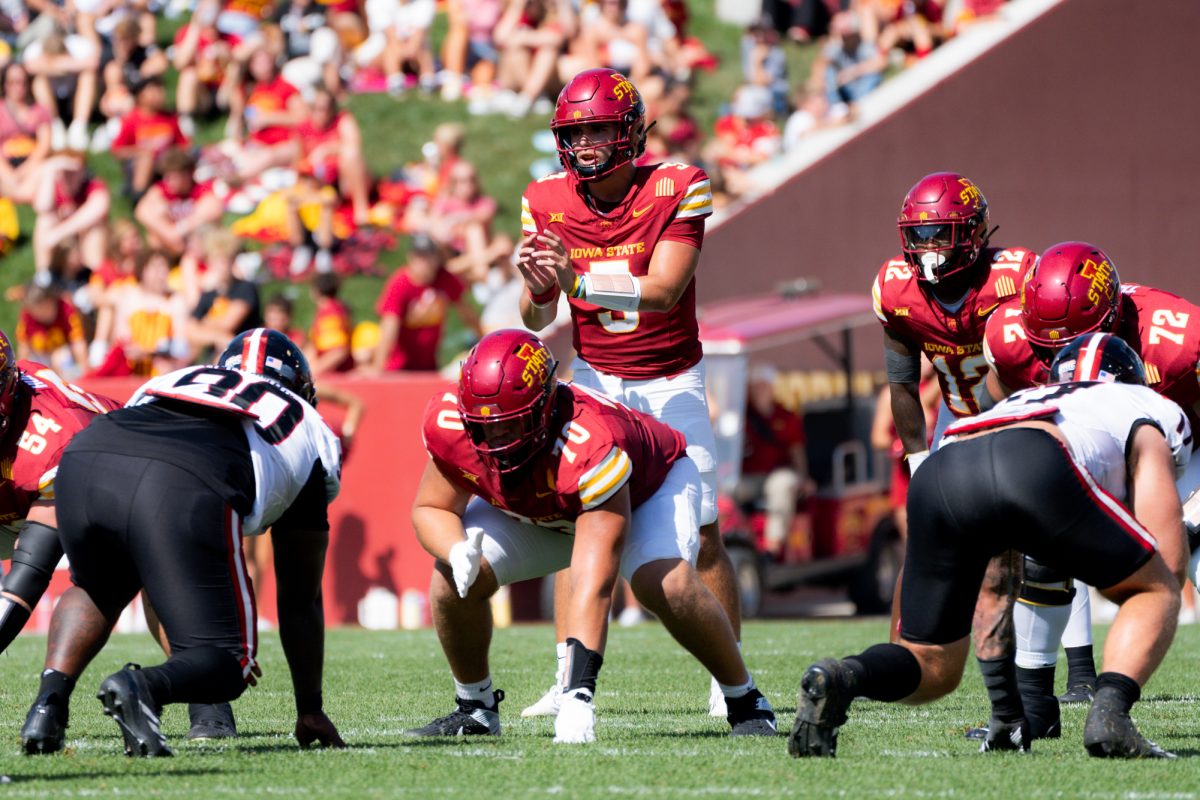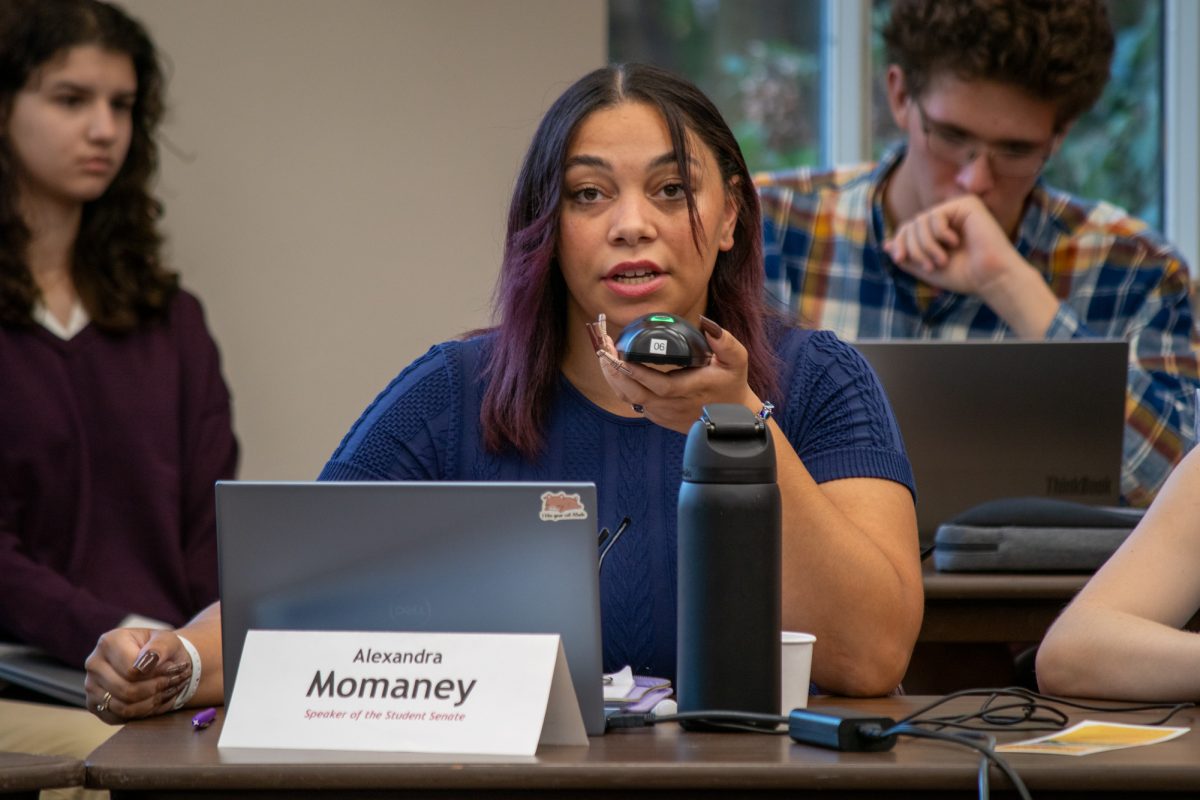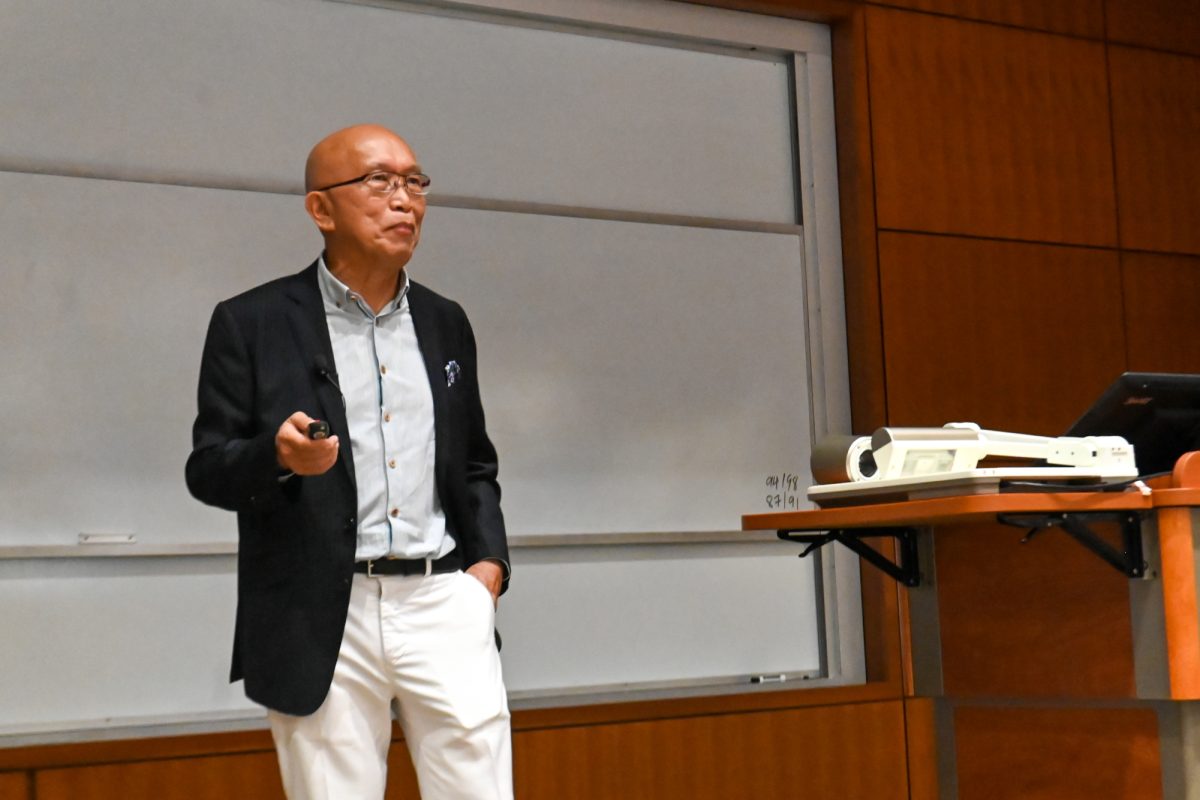Out-Christianed by Atlanta nudie bar
January 18, 2000
I spent last week at the Hyatt Regency in Atlanta. It was fancier than the Super 8 where I usually stay. This is widely known because quite a few homeless folks wait for you on Peachtree Street.
The homeless of downtown Atlanta are the most adamant I have ever seen. My first night there, Tyrone followed us three blocks singing a song and asking us our names. At the end of three blocks, he told us about his tough times and hit us up for money.
The next night, a homeless fellow asked if I was interested in going to the “Gold Club” and handed me a picture of a woman who had misplaced most of her clothing.
He would have received a finder’s fee from the Gold Club. You wouldn’t expect a strip club to be more compassionate about his plight than the enlightened, high-class passersby.
I thought about homelessness more than I do in Ames. We block out what we don’t want to see. I became aware of this in 1992 in Manhattan, before Giuliani started arresting the homeless.
I could walk by someone under newspapers in a doorway or on a bench without noticing until my aunt pointed him out to me.
Even on our campus there are people who dig in garbage cans for bottle deposits. I see them out of the corner of my eye when I’ve passed. No one else pays much attention, either.
I spent the summer in the Boston/Cambridge area where I ran into the homeless on a daily basis. In Boston, it’s next to impossible to go to the bathroom without buying something, even at McDonald’s. This seems intended solely to antagonize the homeless.
Boston police devote a lot of energy to chasing the homeless out of upscale neighborhoods. Half of the Harvard Police log deals with kicking “street people” off campus. Calling them “homeless” would make them look bad.
Most people take efforts avoiding the homeless, but I usually give them money. If someone is really down and out, you can make his or her day with the smallest effort. Just acknowledging the person or giving out a quarter is enough to make a difference.
Driving home from K-Mart last year, I came upon a guy in bad shape on Duff Avenue. Car after car sped past him. When my roommate and I gave him $6, his glassy eyes lit up, and with genuine gratitude he shouted, “God bless you boys!” and waved. Maybe he spent that money on Jack Daniels or crack, but maybe he saw some terrible things in the jungles of Vietnam and hasn’t been able to cope since.
Sitting in Harvard Square watching a Beatles cover band play while old people shook it, two young women told a dirty homeless guy their friends wanted to dance with him.
Moments later, the guy was cutting it up with two beautiful, young ladies as everyone cheered him on. They were gently mocking him, but the guy was on cloud nine, anyway. For a few fleeting moments, he got a break from the humility of panhandling.
In Boston, one of the trains goes by Buzzy’s Fabulous Roast Beef. I couldn’t resist. New Englanders know what beef is, but not “fabulous” or “roast.”
The sandwich was so raw, I gave up after two bites — worried about food poisoning — when I saw a man digging in the trash. Since my sandwich was heading there and I assumed the trash had more bacteria in it than the meat, I thought I’d save him the extra step.
When I asked if he wanted the rest of my sandwich, he stared at me apprehensively, afraid I was kidding.
When he realized I wasn’t, he stumbled over, grabbed the sandwich and started eating ravenously. I was surprised to see he was that hungry.
He sat on a bench up the sidewalk and ate quickly. I was about to leave when he tapped me on the shoulder and gave me a foul smelling zippered pouch and told me not to open it until I got home. Then he left hastily.
I made it to the train before curiosity got the best of me. In the pouch was a broken tape player, a half package of adhesive labels and a bunch of other stuff he had found in the trash. It became clear I was the first person to do anything nice for him in quite some time.
It’s easy to buy into the idea that if homeless people really wanted to, they could work for a living like the rest of us, and that giving them money just encourages them to stick around town.
You can never tell, but a lot of the people on the streets are mentally challenged and have nowhere to go. No one aspires to be homeless.
It’s been my experience that the majority of homeless people really are upon difficult times. If they could help themselves, they would do it to be spared the humiliation of begging and sleeping outside.
It’s difficult to ignore the problems in Atlanta, New York and Boston, but they exist in Iowa, too. Iowans also share the ability to turn a blind eye and rationalize.
With all the churches in this town, you would think someone would stop for the guy at K-Mart. After all, I don’t think there’s a church in town that wants to be out-Christianed by an Atlanta nudie bar.
Erik Hoversten is a senior in math from Eagan, Minn. This has been a special Innocents Abroad feature.






